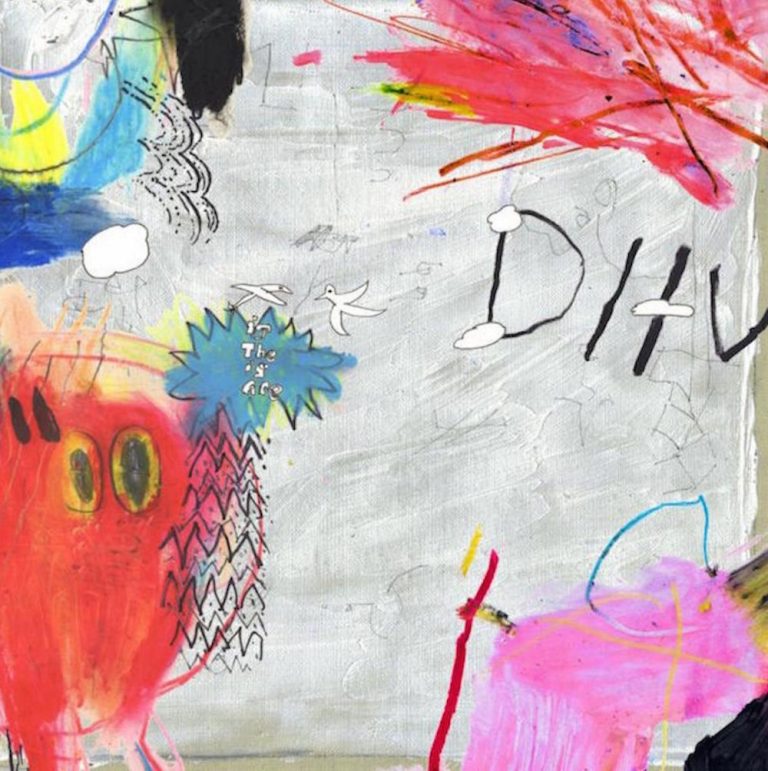There is music that lets listeners feel what the artist is feeling, and there is music that feels out of reach yet instills a sense of importance. Then there is music that seems to be doing everything in its power to shun you. With its themes and song structures, this music is a personal experience that is not asking listeners to understand or put themselves in the artist’s shoes — it only asks for sympathy.
Now it may seem that sympathy is impossible without the emotional connection, which is mostly true, however, unless one actually went through the experiences of Zachary Cole Smith which he captures on DIIV’s sophomore album Is The Is Are, then walking in his shoes is impossible. Does that mean that this album is not for us? One may be inclined to think so, but only before actually hearing the record.
DIIV, Wild Nothing, Craft Spells and other such bands of the 2010s built their sound off of 90s shoegaze and dreampop, which is characterized by ethereal harmonies, drowned in copious amounts of reverb and delay, and is most often dark or at least melancholic. Another important characteristic of this style are rather quiet vocals (also not shying away from reverberation) to the point where they blend in with the rest of the sounds. The person singing almost becomes an instrument.
Is The Is Are is no different, although the vocals are a bit more pronounced than on the band’s debut, Oshin. This is one of the biggest reasons why, although this album is deeply personal and highly contextual, we still are able to feel an impressively wide spectrum of emotions when listening to it. We can’t put ourselves in Smith’s shoes and the words he is singing are not the easiest to make out, so we are left entirely in the realm of music. Our mind doesn’t get distracted with thinking over the words, and even in reading the lyrics, Smith is almost never direct in his songwriting and most often builds his lyrics on imagery and visceral feelings rather than storytelling. This leaves the listener to create their own completely personal picture of this album and fill it with their own meaning.
So what is it about this music that works so well? On surface level, it is that pretty and spacious melodies are generally pleasant, but a good portion of this album is quite dark, dissonant and seemingly unstructured. Another aspect might be that, as Smith noted, while recording this album he was heavily inspired by Elliott Smith, leading DIIV to go for more straightforward pop structures on top of the hooky guitar lines they are known for, a lot of which are catchy enough to be stuck in one’s head for a good while.
But none of this seems to fully capture this album’s magic. Perhaps, magic is just the right word. Can music alone convey the feeling of its composer? Well, sure it can. So, perhaps, pop music deters us from truly diving into the instrumentation and arrangement because of a voice telling us what to feel. DIIV, following their spiritual ancestors such as Slowdive, Ride, Lush, and Cocteau Twins, craft music that exists in its own world, where, while the lyrics are part of it, they are not the protagonist.
In my own personal experience, these images and fractured phrases, along with ingenious instrumentals, made for an album that I needed there and then in 2016. I was a teenager and feeling low is almost a prerequisite to fully experience this age. While addiction and reception of unbridled hate were not parts of my life, I never equate or even compare my teenage years to what Smith was going through at the time. However, this may be one of the main reasons why I gravitated towards such music then. It was not trying to get me to fully focus on what the artist is going through – on the contrary, it infused the vocalist’s struggles into the music in an inviting way so that I could do the same in my personal experience with it.
Smith built a sonic world around himself on this self-produced album, which doesn’t exactly let us in, rather it gifts its character to us so we could build our own. Albums like Is The Is Are I could not listen to around other people. The worlds that this music created were personal, yet they can intertwine. “I wanted every element to sound human, then hopefully people can empathise with me rather than judging me,” Smith told Clash.
In an interview with NME carried out while Smith was battling his demons and recording Is The Is Are, he said: “I know I have to stay alive at least until the album’s done. This is one shot at immortality, if I ever have one, I know it’s by far the most important thing I’ll ever do. That’s very empowering, no matter what fucked-up shit is going on… Every day is a struggle, but I have to be the best I can, stay sober and finish this record.” There it is! The music itself on DIIV’s second album is filled to the brim with this sense of urgency and a simultaneous feeling of impending doom. This is music that conveys to us the most important of things without saying them directly (or saying them at all). This music is dark and sensitive, bright yet laconic. This music is life prevailing. This is immortality.

